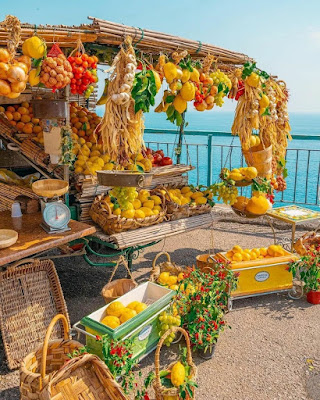WHAT'S IN A NAME?
In many African cultures and beliefs, your name is the most authentic and powerful identity of who you are. And who you will become. It is assumed to be literally your essence. You are your name and your name is You. It is a proclamation, a prophecy, and an affirmation. Often ordained by the Gods. It is a statement for your journey here on earth.
When I moved out to the Western hemisphere, people had trouble pronouncing my name— Ngozichi (Mmm-Goh-zee-Chi), so, I'd say, you can call me "NG" (En-Gee) which is really the first two letters in my name. Trust the average Westerner, many ended up calling me "Angie." And I'd let it slide because it's what is familiar to them.
My name is "Ngozichi". Its origin is in the Igbo language of Southeastern Nigeria. If I was born in Ghana, my name may have been "Afua", or "Freya" if I was born in the Scandinavian and Norse cultures, because I was born on a Friday. Some cultures around the world have intricate ceremonies surrounding naming a child.
In many traditional African cultures, an oracle is sometimes consulted, to enquire about a child's destiny before it is named. It is an ancient ritual. As the name is what the world would call the child for the rest of its natural life. In some cases formal ceremonies take place. There is feasting, dancing, and the whole shebang!
I don't remember if an oracle was consulted before my name was proclaimed. But my father tells a story. He had a dream, in which his late beloved mother appeared and promised she was coming back. Anyway, he named me "Ngozichi" but called me "Nne" short for "Nnenna" (Father's mother) throughout his life.
"Ngozichi" translates to "God's blessings" I guess he wanted a lot of that in his life.
The "Chi" in my name, in the traditional Igbo belief system, means "Personal deity" or "A piece of Divinity." In the Igbo religion and mythology (Odinani), "Chukwu" is seen or translated as the Supreme God or The Great Chi, and "Chi" is the part or piece of "Chukwu" that resides in all humans.
Sometimes, a child is named based on its birth position in the family. A firstborn son, daughter, twins, or even a child born after twins. In the Yoruba culture of Southwestern Nigeria, the first twin is named Taiwo or Taiye, and the second twin is Kehinde. The child born immediately after the twins are named Idowu.
The firstborn son in Igbo is named "Okpara' or "Opara". and the first daughter is called "Ada." In the Efik culture, the first daughter is "Adiaha" and "Akpan" is the first son. In Yoruba, "Aremu" is the equivalent.
Oftentimes, the circumstances of birth determine the name of a child. As many African cultures traditionally believe in reincarnation, a male child born after the passing of his father may be called "Nnamdi" in Igbo or "Babatunde" in Yoruba. And the female child who may be assumed to be reincarnated is called "Iyabo" in Yoruba or "Nnenna" in Igbo.
Names are very important in African culture and Mythology. It is your identity and linked to your providence. No matter what your name is, the most important thing in the world, is that you honor the name. To bring dishonor to your name, especially your family name dishonors your providence. These days, many do not care and are not sensitive to the power in their names.
But as Africans, we should remember the traditions of how we were named and honor our given names by being upright citizens of the world and shun corruption, injustice, and criminal activities in our various governments, and countries.
Our names should be our honor.



Comments
Post a Comment